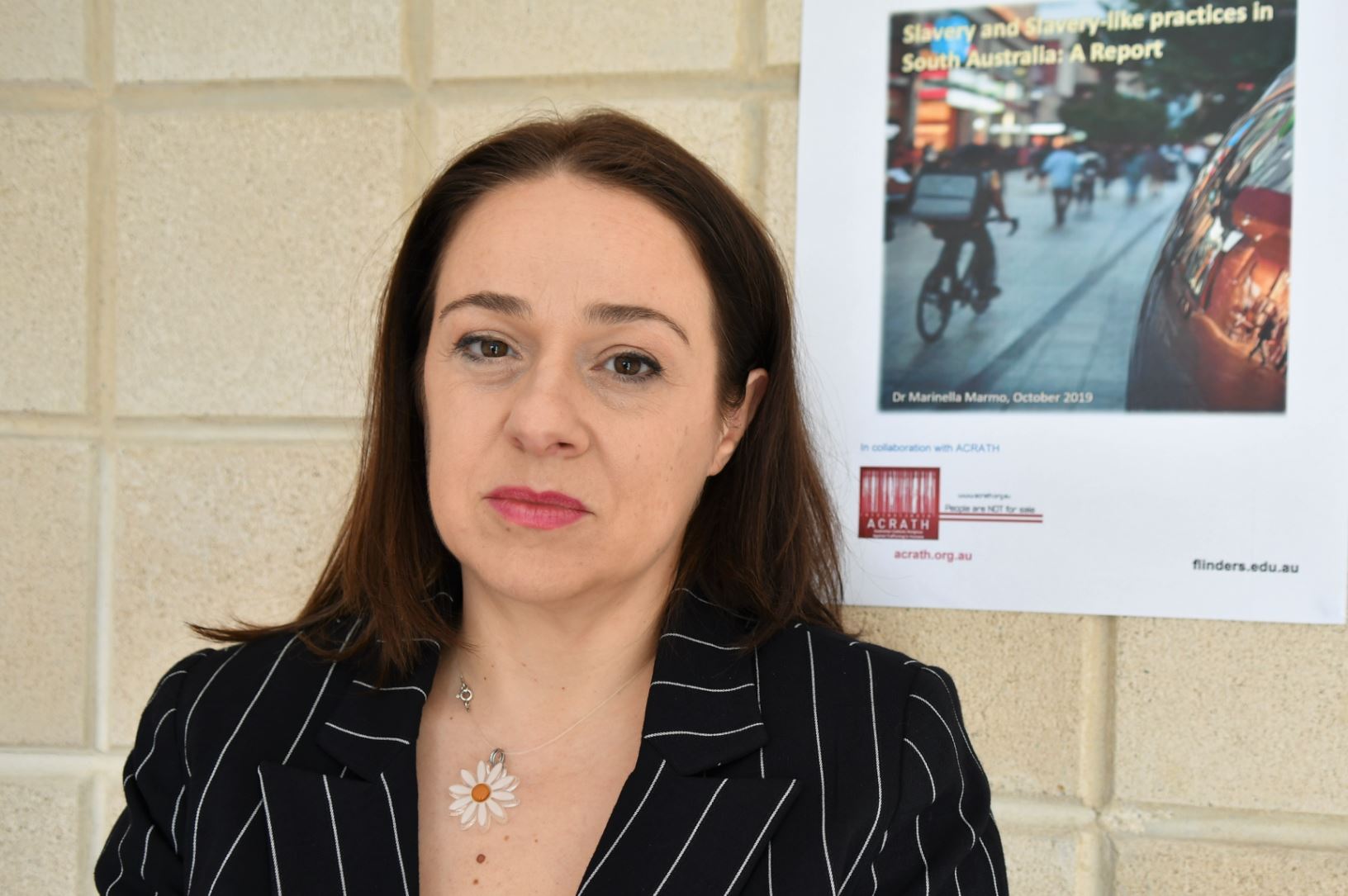
A new investigation has reinforced calls for the South Australian Government to launch an inquiry into slavery and slavery-like practices in the State.
The research report, Slavery and Slavery-like practices in South Australia: A Report, compiled by Law Associate Professor Marinella Marmo in collaboration with ACRATH (Australian Catholic Religious Against Trafficking in Humans), concludes there is cause for an official investigation into slavery and slavery-like practices in the state.
The report focuses on the 18 people documented to have been trafficked in SA between 2004 and 2019; the majority of them young women forced to marry.
The Australian Federal Police (AFP) has referred the 18 suspected victims of human trafficking in SA to the Support for Trafficked People Program (STPP).
The research found that the slavery and slavery-like practice cases in SA have included forced marriage, forced labour and domestic labour, and sexual servitude in intimate partner violence (IPV) cases linked to bridal visas. Most forced labour was found in the hospitality, cleaning and horticulture/agriculture industries.
Earlier this year the Australian Institute of Criminology estimated that for every official victim there are ‘conservatively’ four undetected cases of human trafficking. This would suggest that there are a further 72 people undetected in South Australia, says Associate Professor Marmo who says all the forced marriage and IPV sexual servitude victims are women and “the majority of forced marriage cases took place in metropolitan Adelaide”.
The evidence also suggests that many victims of forced labour are male and that the figure is much higher than the reported figure of 18 people in the support program.
“A few service providers expressed disappointment that such a low number of people have been identified as suspected victims as their anecdotal evidence and observations indicate much higher numbers,” she says.
“Yet they are also not surprised at the official numbers, as their own clients are reluctant to approach the authorities about such offences.”
Associate Professor Marmo adds service providers in both Adelaide and rural SA are increasingly witnessing the conditions of domestic, labour and sexual servitude in intimate partner violence cases linked to spousal visas.

Associate Professor Marmo says an inquiry would help to rectify the gap in information on possible human trafficking in SA.
“However, this research confirms that the practice is real and that there are important key factors that could inform an inquiry,” she says.
Common to all the cases cited in this study is a combination of the following elements:
- temporary migratory status
- isolation and a lack of reliable network
- the inability or unwillingness to have knowledge of, trust and/or use the Australian system
- a lack of sufficient technical-legal English to inform one’s rights adequately, and
- a fear of repercussions and an inability to ‘walk away’ from the exploitative conditions due to threats, blackmail or other reasons (for example, related to honour, shame or financial constraints).
“Through this research we have some questions that need to be further explored if we are to tackle slavery and slavery-like practices in South Australia,” says Associate Professor Marmo.
“We do know that there are elements that are common to all trafficked people that renders them particularly vulnerable, and the more vulnerable they are, the greater is their susceptibility to exploitation.”
The report also recommends statewide programs be introduced to raise the awareness of slavery and slavery-like practices, and educate the wider community about the consequences of breaching related Commonwealth criminal legislation.
ACRATH SA Co-ordinator, Sr Meredith Evans, praised the joint research project saying it is an important step in shining a light on what federal MPs have described as a crime ‘hidden in plain sight’.
Snapshot of slavery in South Australia
The Flinders University report reveals an alarming snapshot of slavery and slavery-like practices in South Australia, including:
- In SA, out of the 18 suspected victims, 10 were in forced marriages and 8 experienced sexual or labour exploitation
- Out of the 10 victims in a forced marriage type, most were young people aged 23 years or under who received support after leaving or when wanting to avoid a forced marriage
- The people referred by the AFP to the STPP in SA have received support for between a minimum of 45 days to a maximum of 6.6 years, with the majority of clients receiving support for 1 to 3 years
- The age of identified victims in SA at the referral stage fell within the range of 15–59 years. Nine victims were 25 years or younger at referral and nine were 26 years or older.
- All of the 18 cases were female
- The vast majority of STPP clients in SA were of CALD (culturally and linguistically diverse) background. In SA, the overwhelming majority were not born in Australia and none were Australian citizens. The vast majority were from an Asian country, but there were cases from Western Europe and Africa as well. They were born in eight different countries from every region except the Americas.
- Red Cross data reveals that 10 clients have chosen to participate in the criminal justice process.

